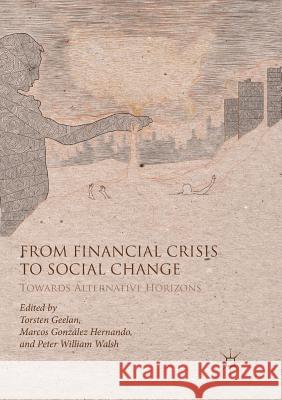From Financial Crisis to Social Change: Towards Alternative Horizons » książka
topmenu
From Financial Crisis to Social Change: Towards Alternative Horizons
ISBN-13: 9783030099725 / Angielski / Miękka / 2019 / 285 str.
Kategorie:
Kategorie BISAC:
Wydawca:
Palgrave MacMillan
Język:
Angielski
ISBN-13:
9783030099725
Rok wydania:
2019
Wydanie:
Softcover Repri
Ilość stron:
285
Waga:
0.36 kg
Wymiary:
21.01 x 14.81 x 1.65
Oprawa:
Miękka
Wolumenów:
01
Dodatkowe informacje:
Wydanie ilustrowane











